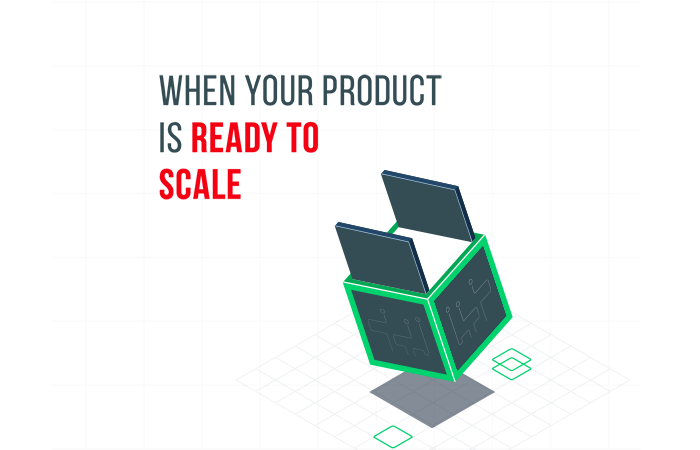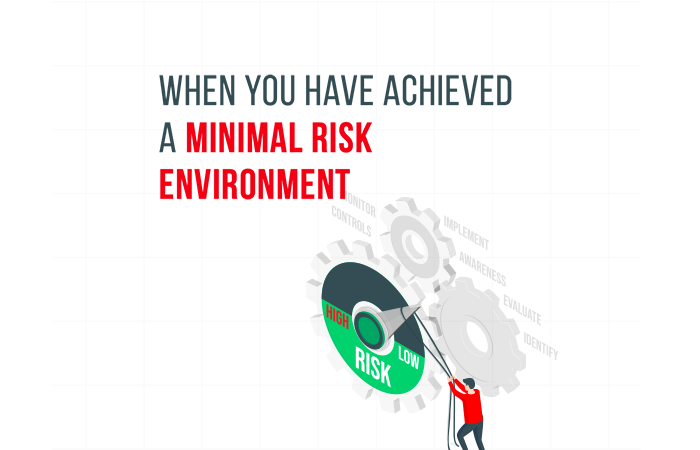Growth and Scale.
Entrepreneurs, startup owners, and venture capitalists use these two buzzwords when discussing business expansion.
Despite their different meanings, many people use these two terms interchangeably.
Before we go into 10 tips on how to grow your business, we have to understand the difference between the two.
Growth vs. Scaling: The Difference You Need to Know
Business Growth
We always think of growth in linear terms. For example, growth for a company normally gets attributed to: a) an increase in clientele, b) hitting more significant revenue targets, and c) market value gains.
Although growth may be happening, you may find that your company is losing unhappy customers, struggling to fulfill orders, and encouraging an employee exodus because of overwork.
If you’ve hired the best people or even executed successful business planning, it doesn’t matter then. The fact is, as your business grows and customer demand rises, problems are bound to emerge for even the most well-run companies.
So what could possibly be the reason for this?
Answer: Unscalable business processes.
Unscalable business practices are prone to breaking down under the immense pressure of hypergrowth.
With your company growing at 50-70% annually, one of your processes will start to falter. If your system is fragile, it won’t withstand the shocks and stresses of rapid growth.
Business Scaling
On the other hand, business scaling means growing your business while not up-ticking any expense box.
This means streamlining your company’s internal processes without spending too much on hiring new employees.
For instance, say your business gains a new digital marketing project worth $50K. Here you have two options:
A) Either add new members to your current marketing team
B) Equip your existing team with intelligent marketing automation tools.
Given the time and money involved in hiring new resources, it’s less expensive and intelligent to invest in marketing tools like HubSpot. This move will boost team performance, efficiency, and productivity.
By doing this, you can keep the cost low to prevent spending too much on every new client. Therefore, an automated marketing approach not just saves you time and resources but also helps you scale business operations.
What Is a Scaling Strategy?
A business scaling strategy enables sustainable growth in a company by setting up a solid foundation for internal procedures.
Successful scaling requires a plan, capital, suitable IT systems, technology, and partners.
You’re well-positioned to scale your internal processes if you own a small business that has successfully navigated through a difficult economic period.
Automation is one way to do this since it consumes a lot of resources and time.
For example, an email marketing tool can automate email campaigns. So now, if you send 10 emails or 1,000, it will take the same amount of time and effort.
10 Tips for How to Scale a Business
1. Create a Business Map

As a business owner, you surely have made a business plan for growth, but have you ever developed a business map? Business maps are more in-depth, practical, and a surefire way for entrepreneurs to map out their business’ current standing, way forward, and future outcomes.
An ideal business map includes some basic questions: What industry are you really in? What motivated you to start this business in the first place?
Additionally, a business map helps you decide on your company’s way forward, how it will generate more sales, and how its culture will evolve when it scales up.
Such documentation is beneficial for sketching and mapping your business goals, and it also provides motivation when times get tough.
2. Identify Your Business Purpose

In his book Start With Why, Simon Sinek writes, “People don’t buy WHAT you do, they buy WHY you do it.”
Therefore, before selling your product/service to your customers, be clear on why you offer it. What value do they add to your customer’s daily life, and what customer problem do they solve?
You can only build customer loyalty once these questions have been answered. In contrast, if you fail to find and communicate the “why” of your business to your teammates and employees, any scale-up strategy will be an ultimate failure.
3. Master Your Product/Service Offerings
You can have the most brilliant idea on the planet, but it will be of little use if you don’t put it out there and get people to pay attention to it.
Without testing and understanding how to scale a business, it will fail. Why? If your product is flawed, people will not want to use it.
Before scaling a business, make sure that you have a solid product or service offered with good quality and a high conversion rate.
Then you can scale your business without worrying about failing—because your product will be good enough for people who want to use it.
Suggested Read: Master Your Product Adoption – Drive More Sales for your Business
4. Create Thoughtful Processes and Operations

It’s perhaps the most crucial factor on the list. It takes businesses years to put in processes and operations that work for them. The core purpose behind creating thoughtful and repeatable processes is to ensure customers interact with your business seamlessly.
You don’t want to lose customers you have worked so hard to acquire because some of your business processes are inefficient.
Setting up your business core processes is not an overnight job; hence you should work on mastering them from day one. Some of your procedures might have been ideal during your company’s early years, but as it grows, you may need to tweak or replace them.
The more adaptive you are to change, the easier it is for you to support growth in the long run. Although there’s always room for improvement, if you’re not vigilant enough to sense the massive growth of your company beyond a certain level, your existing processes may fall in place.
5. Train and Build Your Team

Training and building your team to adapt to the ever-changing landscape of your business is a prerequisite for scaling up. When you decide it’s time to scale your business, you need flexible, growth-oriented people.
New processes demand quick learners who can prove to be a vital part of the scale-up process in the long run. And this not only goes for people that work for you; it goes for your clients, business partners, and other stakeholders.
Remember, it’s not just your team that builds and speaks for your business; it’s your relationship with your existing and previous clients, what value you give to their opinion, and how quick you are to address their problems.
One exciting thing about small businesses is that you can build direct and close relationships with your clients, who can later become staunch advocates of your business and help it scale by spreading the word about it.
6. Invest in the Latest Technology

All this talk is made possible due to the advent of technology. This blog would’ve been a complete waste of time if there wasn’t any technology to facilitate business scale-ups.
The latest technology is a surefire way to scale your business as it makes work easy, removes redundancies, and enhances work productivity.
Therefore, it’s imperative to invest in the technology to minimize manual work and streamline your business operations. To deal with workloads and productivity problems, keep a close eye on CRM software, marketing automation, sales management, inventory, Warehouse Supplies manufacturing, accounting, HR, CRM marketing, shipping, and other technology tools.
7. Prioritize Sustainability

One of the most important things a company can do to improve its ability to manage growth is prioritizing sustainability. When you can focus on long-term sustainability, you can build a culture of innovation and maintain a healthy business process.
As a leader, it’s essential to cultivate a culture of sustainability that seeks solutions that are good for people. It’s not enough to say you will be sustainable; you have to show by doing.
In practice, things that are sustainable in principle can often get away from you. When you prioritize sustainability over short-term gains, you create a system that works for everyone involved long-term.
8. Continue Adapting and Innovating

Most business owners think of scalability as some destination; once they reach it, they stop. But remember, if you’re not growing in business or in life, you’re dying.
Scaling your business is a never-ending route; it may have stops along the way, but it continues. Therefore, if you want to scale your business, align your choices with the business purpose to make the process easier and get more results.
9. Capitalize On Your Cutting Edge

If you want to succeed in the market, your business needs to have a competitive edge over its competitors. And your cutting edge goes beyond the services/products you offer. It’s something related to your core values that sets you apart from others and the one you can capitalize on.
The best way to decide on your business’ competitive edge is through SWOT (Strengths, Weaknesses, Opportunities, and Threats) analysis. This will help you critically evaluate what value your company brings to the table and how it’s different from the rest.
Therefore, identifying, developing, and marketing your company’s strengths is essential for scaling.
10. Outsource Strategically

Last but not least, you need a workforce to execute tasks for your business. When you mix up the latest technology with knowledgeable workers around the world, you set up a solid foundation to perform daily tasks efficiently.
As Apple founder Steve Jobs once said, “Great things in business are never done by one person. They’re done by a team of people.”
According to Gartner, 31% of workers worldwide will be remote (a mix of hybrid and fully remote) in 2022. The U.S. will lead in terms of remote workers, accounting for 53% of the U.S. workforce.
Therefore, outsourcing is perhaps the most practical option for your business to streamline functions. However, scaling sometimes requires you to make tough decisions about which processes you can and should perform internally.
Once decided, hire remote team solutions from a third-party company that has more resources and is more technologically sound than yours. Doing this will help you scale your business faster and much cheaper.
Which Businesses Scale More Naturally?
Although any business can proliferate, some are better positioned to scale than others.
For example, professional service companies like accounting and tax firms will always have their shortcomings while scaling since they need to rely on external resources to help them succeed.
Contrastingly, IT or SaaS (Software as a Service) companies are more likely to scale since they can sell their services/products to new customers with minimal alterations.
Moreover, they have their revenue streams coming monthly. And they only need to spend some extra money to keep serving their existing customers who pay on a monthly or milestone basis.
When Is It Time to Scale? 3 Signs to Look Out For

Your business is going well. You’re growing, and are ready for the next step. You’ve created a great product/service, have good people working for you, and got a solid plan for how to keep it going.
But what happens when it’s time to scale up?
This is one of the most common questions we get, and it’s often followed by, “But I’m not ready yet! I don’t have enough money, I don’t have enough clients, and I haven’t thought this through.”
Luckily, there are some signs you can look out for when it’s the right time to scale. This section will list 3 signs you should watch out for before scaling your business model.
1. When Your Product Is Ready to Scale

Your product isn’t perfect yet, but it’s close enough that you can start taking orders. Next, you’ll need a way for customers to purchase your items, which means finding a manufacturer and setting up an ecommerce site.
2. When It’s Time for an Expansion

It’s not just about expanding your product line; it’s also about increasing the number of people you’re reaching with it. If you launch a product with just one customer—yourself!—then scaling will be much harder for your growing business.
But if you’ve already attracted customers and have built a healthy community around your product, scaling is much easier.
3. When You Have Achieved a Minimal Risk Environment

Don’t rush towards business scaling just because the term is very tempting. The biggest drawback of scaling a business is losing focus on your company goals, and it can even damage its existing cash flow.
Therefore, don’t risk anything just because your revenues are one up in a quarter, and you believe your employees are trustworthy. Risk is an inherent part of businesses, and the best you can do is minimize it before scaling up.
Also Read: Why TechNerds’ LinkedIn Outreach Program Is Exactly What You Need To Grow Your Business
Successfully Scale Your Business With TechNerds
We define scaling as a lifeline for longer and sustainable business growth. Therefore, at TechNerds, we help you grow and gauge your growth by implementing effective scaling strategies.
We’re North America’s fastest evolving digital marketing agency that takes pride in launching, growing, and scaling more than 200 startups globally.
Get the guidance you need with our business experts and take advantage of our diversified resources to perfect scaling methods that will raise your business to the next level.
Book Your Discovery Call

Many use these two terms—growth and scale—interchangeably: “A company making a lot of money, expanding its market share, and hiring quickly.”
However, there’s a slight difference between growth and scale. But unfortunately, hardly anyone mentions it as enthusiastically as when referring to these buzzwords as crucial business success factors.
Every business owner should know the differences between business growth and scaling and what kind of growth they need to pursue.

